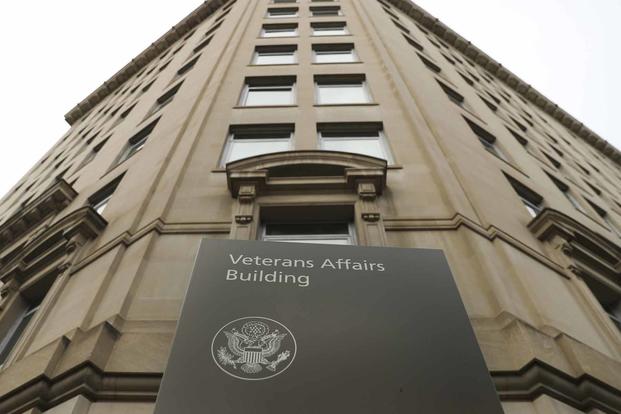More than 50,000 Veterans Affairs patients died in 2020 than expected based on previous years -- a finding that provides additional insight into the true impact of the pandemic on the veteran community, according to a new study.
The study, set to be published next year in The Lancet Regional Health - Americas but released online Oct. 30, found that 17% more VA patients died in March through December at VA than expected from all causes, including COVID-19, compared with 2016-2018.
By the end of 2020, VA had slightly more than 7,000 confirmed COVID-19 deaths. That means that 44,000 of the deaths above the roughly 375,000 the VA averages yearly were either COVID-related but not categorized accordingly, or they were preventable, caused by something that would have otherwise been treatable in a year when hospitals weren't overwhelmed or people stayed home.
VA researcher Kevin Griffith, an assistant professor at Vanderbilt University's Department of Health Policy, said statistics that focus only on confirmed COVID-19 deaths "really understate the human suffering the pandemic is causing."
"What you want to count is the number of people who would still be alive today, not just those who died of COVID," Griffith said during an interview with Military.com.
Read Next: More Housing Money Coming as Pentagon Ponders Fix for Military Family Hunger
The researcher set out to determine the number of excess deaths in 2020 overall and for individual VA medical facilities, thinking the data could be useful for the department while it examines its pandemic response and plans for the next national emergency.
They found that compared with the general U.S. population, VA had fewer excess deaths -- a data point they found surprising, given that VA serves an older patient population with complex medical issues.
According to a study published in April in JAMA Network, during the same period, the U.S. saw more than 522,300 excess deaths, up 23% from previous years, including more than 350,000 from COVID-19.
“VA did better than expected, and we think a lot of it is related to its very strong response, very robust response to the COVID pandemic early,” Griffith said.
While the team did not explore why VA fared better during the pandemic, researchers theorized that VA patients were able to maintain access to medical services while many in the general population lost their medical insurance as the result of unemployment. VA also ramped up its telehealth capabilities, locked down nursing homes and facilities with high-risk patients and canceled elective procedures early on.
"The VA dusted off all their pandemic plans, rewrote them, stockpiled ventilators and had staff training," Griffith said. "Giving credit where it's due, [then-Secretary Robert Wilkie] had a population at high risk for severe COVID, and he managed to navigate the early days of the pandemic better than expected."
The study found that areas hit hardest by the pandemic tended to have higher excess deaths -- places like the VA medical facilities in VA New York Harbor Health Care System in New York City and Beckley VA Medical Center in West Virginia, while others did not see a spike, including the VA Southern Nevada Healthcare System in Las Vegas and the Chillicothe VA Medical Center in Ohio.
Griffith said VA could look to those VA medical centers to determine "best practices" and shortcomings during a future crisis.
"This level of data allows us to see how well specific policies mattered, how different health system's response mitigated the pandemic," Griffith said.
Since March 2020, there have been 376,424 cases of COVID-19 among VA patients, and 15,536 have died.
"There's this perception that the VA is terrible for quality of care, and everyone hates it, which makes sense because any time VA does anything bad, it makes the news. But the VA in this case didn't mess around," Griffith said.
-- Patricia Kime can be reached at Patricia.Kime@Monster.com. Follow her on Twitter @patriciakime.
Related: VA Won't Challenge COVID Vaccine Religious Waiver Requests in Most Cases














